NCI grant establishes center to advance cancer curing goals

The National Cancer Institute has awarded Johns Hopkins Institute for NanoBioTechnology (INBT) a $9 million grant to support a multidisciplinary center to discover news ways to diagnose and treat cancer. NCI, which is part of the National Institutes for Health, allocated the funds over five years to enable scholars in the Johns Hopkins Physical Sciences-Oncology center to apply the tools of the physical scientist, engineer, applied mathematician, cancer biologist and others to unravel how cancer cells survive, grow and migrate.
In the image above:
Artist’s image of a cancer cell traveling through a 3D matrix that closely resembles the environment through which cancer cells move in a human body. IMAGE CREDIT: JENNIFER E. FAIRMAN / DEPARTMENT OF ART AS APPLIED TO MEDICINE
The PS-OC is comprised of researchers from university’s Whiting School of Engineering and its School of Medicine, as well as collaborators from Washington University in Saint Louis, the University of Pennsylvania Abramson Cancer Center, and the University of Arizona comprise the new center based within INBT.
Denis Wirtz—the university’s vice provost for research, INBT’s associate director, professor in the Department of Chemical and Biomolecular Engineering, and a member of the Johns Hopkins Kimmel Cancer Center—will serve as director and principal investigator of the new center.
“Instead of looking at other aspects like tumor growth, I’ll be working with my colleagues in the schools of engineering and medicine to uncover the physical underpinnings of cancer metastasis,” Wirtz said. “The ‘team science’ approach in our center should result in the creation of new therapies targeting metastasis, the primary cause of human cancer deaths.”
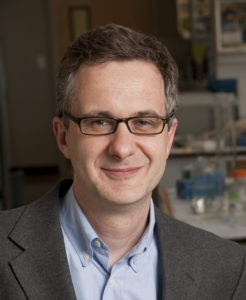
Denis Wirtz
Kenneth Pienta, professor of urology, oncology, and pharmacology and molecular sciences at the Johns Hopkins School of Medicine, will serve as the PS-OC’s associate director. Pienta also co-directs Johns Hopkins University inHealth Signature Initiative, a trans-University, and cross-disciplinary effort to coordinate and apply the intelligent use of population health data for individual patients. Currently, his research involves defining tumor microenvironments and how they contribute to the growth of tumors and the spread of cancer. His bench laboratory program is closely tied to the development of novel therapies for prostate cancer.
Ed Schlesinger, dean of the university’s Whiting School of Engineering, endorses Wirtz’s strategy. “By approaching the problem of metastasis from an engineering perspective,” Schlesinger said, “Denis has provided an entirely new understanding of cell motility and has opened the doors to the possibility of new and far more effective cancer treatments.”
This is not the first PS-OC for INBT. Wirtz directed INBT’s first 5-year PS-OC grant, which ran from the fall of 2009 until 2014. This new PS-OC grant creates a brand new center, with projects that have evolved out of the first center’s original research goals. The new center projects include:
- The Role of Physical Cues in Collective Cell Invasion – This project will examine how the physical forces exerted upon cancer cells when they are confined within a tumor can affect the migration of these cells, both collectively and individually. The team is led by Konstantinos Konstantopoulos, chair of the university’s Department of Chemical and Biomolecular Engineering.
- Forces Involved in Collective Cell Migration – When they break away from a tumor, some cancer cells seem to prefer to travel in groups. This team, led by center director Wirtz, will study the forces involved in organizing the collective migration of breast cancer cells in both 2D and 3D environments.
- Impact of low oxygen on the migration of sarcoma cells – Low oxygen within a tumor (hypoxia) dramatically increases pulmonary metastasis and results in poor health outcomes. Researchers led by Sharon Gerecht, a professor of chemical and biomolecular engineering, will try to determine how primary tumor cells respond to oxygen in their microenvironment. The goal is to better understand the spread of cancer and identify new treatment targets.
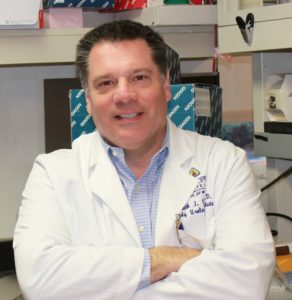
Ken Pienta
Other members of the Johns Hopkins PS-OC center include Andy Ewald and Daniele Gilkes of the School of Medicine, Pei-Hsun Wu and Sean X. Sun of the Whiting School of Engineering, Karin Eisinger and Celeste Simon of the University of Pennsylvania, and Charles Wolgemuth of the University of Arizona.
The Hopkins center is part of a nation-wide NCI Physical Sciences-Oncology Network.
“As a complement to traditional cancer research approaches, the innovative trans-disciplinary approaches and perspectives in the PS-ON will aid in unraveling the complexity of cancer,” said Nastaran Kuhn, associate director of NCI’s Division of Cancer Biology PS-ON program. “These approaches are aimed at understanding the mechanistic underpinnings of cancer progression and ultimately developing effective cancer therapies.”
Latest Posts
-
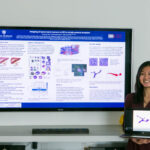 Q&A with PSON Intern Jocelyn Hsu
August 19, 2021
Q&A with PSON Intern Jocelyn Hsu
August 19, 2021
-
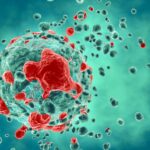 Start Up Founders from Johns Hopkins Aim to Stop Spread of Cancer
August 3, 2021
Start Up Founders from Johns Hopkins Aim to Stop Spread of Cancer
August 3, 2021
-
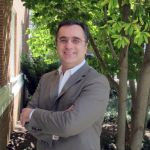 Protein Appears to Prevent Tumor Cells from Spreading Via Blood Vessels
July 15, 2021
Protein Appears to Prevent Tumor Cells from Spreading Via Blood Vessels
July 15, 2021


